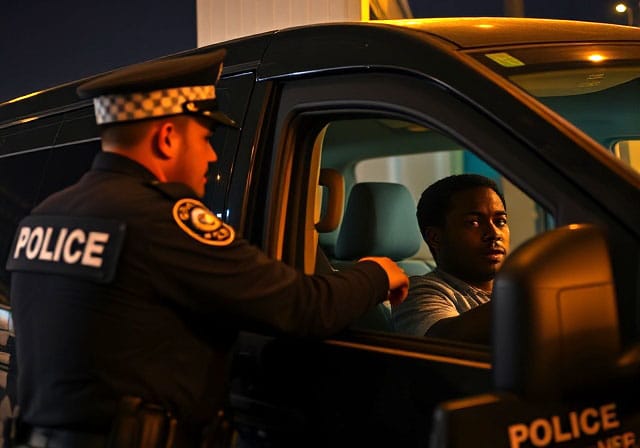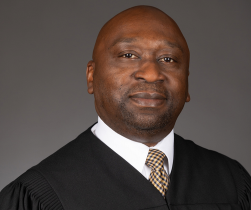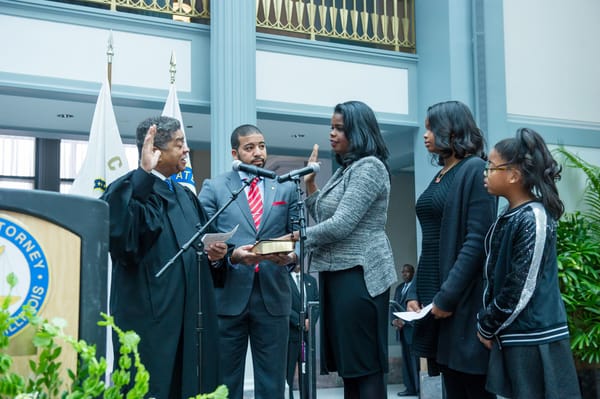High court upholds gun conviction despite State's failure to prove defendant didn't have license

The Illinois Supreme Court voted to uphold the conviction of a man on an unlawful possession of a weapon charge, a misdemeanor that carried a 30-day jail term, even though state prosecutors pursued the case without independently verifying that the defendant violated state law.
While all seven justices voted to uphold the conviction, three disagreed with the majority's reasoning – prosecutors weren't required to prove that the defendant was in possession of a firearm without a required license because he told police that he didn't have a license after they found a firearm in a vehicle he was driving.
"[W]e hold that [the defendant's] admission that he had not been issued a valid CCL did not require independent corroboration under the corpus delicti rule," four of the high court's seven justices advised in the October 18 opinion. "Therefore, the evidence adduced at trial was sufficient to sustain his conviction."
In a critique of the majority opinion, Justice Mary K. O'Brien said that the decision departed from a longstanding rule that aims to protect people from wrongful convictions.
"For more than 150 years, we have held that the corpus delicti cannot be proven by a defendant’s confession, admission, or out-of-court statement alone," O'Brien wrote. "The majority’s reasoning represents a drastic departure from well-settled precedent."
No link between Harvey and firearm
The case against Anthony Harvey commenced Feb. 21, 2019 at 11:36 p.m. when police on patrol on Chicago's northwest side observed "an obstructed windshield" on a 2010 Chrysler Town and Country minivan. As police operated emergency equipment to "curb the vehicle," they said Harvey reached down towards the middle of the floorboard. After Harvey and a passenger exited the vehicle, police recovered a 9 mm semi-automatic pistol.
Police asked Harvey if he had a CCL or a firearm owner identification card. Harvey said no, according to court documents. Officers testified that they never saw a firearm in Harvey's possession. No fingerprints were found on the firearm.
At a bench trial prosecutors presented no evidence linking the firearm to Harvey or evidence suggesting that he knew the firearm was in the van. State prosecutors argued that Harvey's knowledge of the firearm could be inferred from the "furtive" movement police said they observed when they stopped the van.
A circuit court judge found Harvey guilty of unlawful use of a weapon.
State has burden of proof
In his appeal Harvey argued that state prosecutors had the burden to prove that he hadn't been issued a valid CCL in order for his statement to be used in court as proof that he violated state law.
In 2013 Illinois enacted a law that requires firearm owners to obtain a CCL license to carry a firearm in public.
The Second Amendment guarantees a right to bear arms in public for self-defense, thus, Illinois can't treat possession of a firearm as presumptively illegal while demanding that the defendant prove his entitlement to the exercise of that constitutional right.
"In order to sustain a conviction for unlawful use of a weapon...the State must prove that an individual was not properly licensed in Illinois to carry a concealed firearm in public," Harvey argued.
Based upon police testimony about Harvey's behavior and the retrieval of the firearm, an appellate court also upheld the conviction. But a dissenting justice on that court said that upholding this conviction was "inconsistent with our commitment to proof beyond a reasonable doubt."
Majority disregards rule that aims to prevent wrongful convictions
Four of the seven Illinois Supreme Court justices based their decision to uphold the conviction on Harvey's statement to police.
"[I]t is reasonable to assume that an innocent person, when speaking to
the police and aware that his conduct is being challenged, will offer an explanation for that conduct if one is available," the high court said in its opinion.
"Harvey did not do that here, although he had the opportunity to do so. A reasonable inference to be drawn, therefore, is that Harvey was unable to offer an explanation because he did not, in fact, own a valid CCL."
In her critique O'Brien said that the Harvey's out-of-court statement wasn't enough to establish that he committed a crime. O'Brien said that the four justices ignored established precedent and arbitrarily decided that defendant’s incriminating roadside admission did not require independent corroboration under the corpus delicti rule.
"[T]he majority’s opinion upholds defendant’s conviction solely upon the fact that defendant responded “no” to the officers’ investigatory inquiry," O'Brien wrote.
"Our precedent, however, makes clear that simply responding “no” to an officers’ inquiry, without independent evidence to corroborate defendant’s admission, is insufficient, standing alone, to support defendant’s conviction."
Derived from the Latin phrase, corpus deliciti, means "body of the crime." Under this principle, courts have asserted that proof of a crime can't be established by a defendant's confession, admission or out-of-court statement alone.
The rule requiring corroborating evidence to achieve corpus delicti arises from a historical mistrust of extrajudicial confessions. The principle goes back to 16th century English law aimed at preventing people from being convicted of crimes that didn't happen due to coercion or mental illness.
Continuing to lament the court's departure from the rule, O'Brien said that the corpus deliciti principle, is now even more important.
"[T]he rule now serves to not only protect against wrongful convictions resulting out of coercion or mental illness but also scenarios involving language or communication barriers between the authorities and the defendant. These barriers often result in limitations that create confusion or prevent comprehension at a time when someone’s very liberty is at stake."
In addition to residents of Illinois with limited English proficiency, unique dialects or accents, people who are deaf or hard of hearing, a different literacy or vocabulary level than the law enforcement officer, people with autism and other developmental or intellectual disabilities can be harmed if state prosecutors are allowed to pursue a case based solely on a defendant's out-of-court statement.
Instead, O'Brien voted to uphold Harvey's conviction based upon police testimony about Harvey's behavior.
"I agree with the appellate court majority’s conclusion that defendant’s admission was corroborated by his furtive movement to conceal the semiautomatic pistol immediately after the officers activated their emergency equipment."



